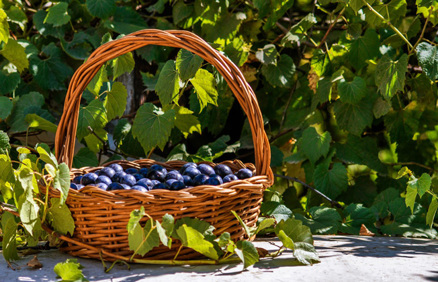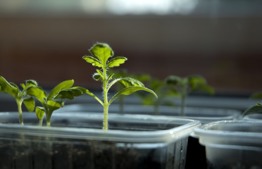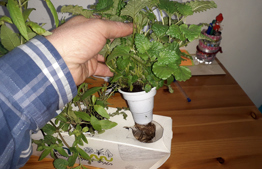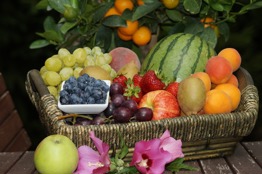Payment at the end of a fruit picking tourism event

On the practical halachic difference when payment is made at admission or at the checkout of fruit-picking events plus guidelines for such events.
Foreword
The guidelines to visitors at a fruit picking events at the Torah VeHa'artez Institute states as follows:
Fruit picking at various orchards is a wonderful activity, and can connect people who don't work the soil on a regular basis to our Holy Land, the fruits of the Land of Israel, and the mitzvot related to them. To strengthen the bond between the soil and the land-dependent mitzvot at the harvest, we need to pay attention to the following issues:
- Ensure that the fruit being picked are not orlah. Ask the orchard owner for the Chief Rabbinate kashrut certificate (it should be readily available).
- There is a difference between a visit when the payment is made upon admission to the orchard and one when payment is made at the end of the visit.
If the payment is taken at the end, the fruits snacked on during the tour are exempt from terumot and ma'aserot. However, if one sits down to eat several fruit in one sitting (such as at a picnic table and the like), it is considered achilat keva and terumot and ma'aserot need to be separated. Similarly, from all of the fruits taken home, terumot and ma'aserot need to be separated before eating.
- If the orchard owner charges upon admission, terumot and ma'aserot should be taken at the beginning of the visit for the fruit that will be eaten, following the Institute's guidelines found on our website (this is the commen practice in most tourism picking events).
Question
What is the difference between payment upon admission to a fruit picking event and payment after the harvest? It seems that the payment is not what determines the sale, rather the desire of the seller to sell the fruit and the buyer to buy it. If so, then wouldn't the transaction take place upon harvest and consumption—meaning that the visitor would be obligated in separating terumot and ma'aserot even if payment is made at the end of the visit?
Answer
The Mishna (Ma'aserot 2:6) discusses a case where someone pays ahead of time on fruit that he will pick from the tree. In the case at hand, it is permitted for him to eat the fruit one at a time. If he picked two fruits together, though, they are obligated in ma'aser (kavu'a lema'aserot; fixed or determined, thus obligated in tithing). In the words of the Mishna:
One who says to his friend: "Here is an issar for ten figs which I choose for myself," he may choose them and eat [one at a time without tithing]. [If he said] "For a cluster of grapes which I choose for myself," he may pick grapes from the cluster and eat. [If he said], "For a pomegranate which I choose for myself," he may slice and eat [it one piece at a time]. [If he said], "For a watermelon, which I choose for myself, "he may slice it and eat [one piece at a time]. But if he said "For these twenty figs," or "For these two clusters," or "For these two watermelons," he may eat them in his usual way and be exempt [from the tithe], because he bought them while they were still attached to the ground.
The Rambam, in his gloss on the Mishna, writes as follows:
But if he bought from the [fruit] attached to the ground and picked it afterwards, he can snack on it just as the owner of the field can. But if he bought it and did not specify [which fruit], it is if he bought produce already detached, and thus determined for tithing at the time of the transaction. Just as it will be explained in this tractate how sales transactions determine [produce] for tithing.
The Mishna stresses that in the case when the buyer can pick any fruit he so chooses the fruit is determined for ma'aserot at the time of the transaction (when the money changes hands). In this case, it is as if the fruit was purchased after being disconnected from the tree, even though when the money was given the fruit is still connected to the tree. The Aruch HaShulchan (ha'atid, 97:18;102,1 explains that money without taking the fruit creates this kevi'ut due to the importance of the money. This is despite the fact that money does not transfer the ownership of chattels miderabanan (SA CM 198:1), and even though there is no determination for ma'aser when the fruit is bought when attached to the tree (rambam ma'aser 5:2). If money is paid at the outset, the importance of the money is what confers the status of a purchase. Thus, the fruit may only be eaten one by one. However, if two fruits are picked at a time, they may not be eaten without tithing. The picking of two fruits give them the status of kavu'a, since the purchase goes into effect only after the stage of gemar melacha (completing the task), and only two fruits harvested are considered gemar melacha where harvest is concerned (aruch hashulchan ha'atid: 102,5).
However, if the money is paid at the end of the visit, covering any fruit eaten along the way, there is no kevi'ut based on an earlier transaction (since the transaction is performed at the end). In this case, the fruit attached to the tree is not determined for ma'aserot so it can be snacked on without having to take terumot and ma'aserot (aruch hashulchanha'atid: 102,2). In light of the above explanation it is clear why the Mishna and Rambam discuss the payment of money prior to the fruit harvest, and did not simply mention a transaction: this advanced payment has a special halachic status.
See here.




